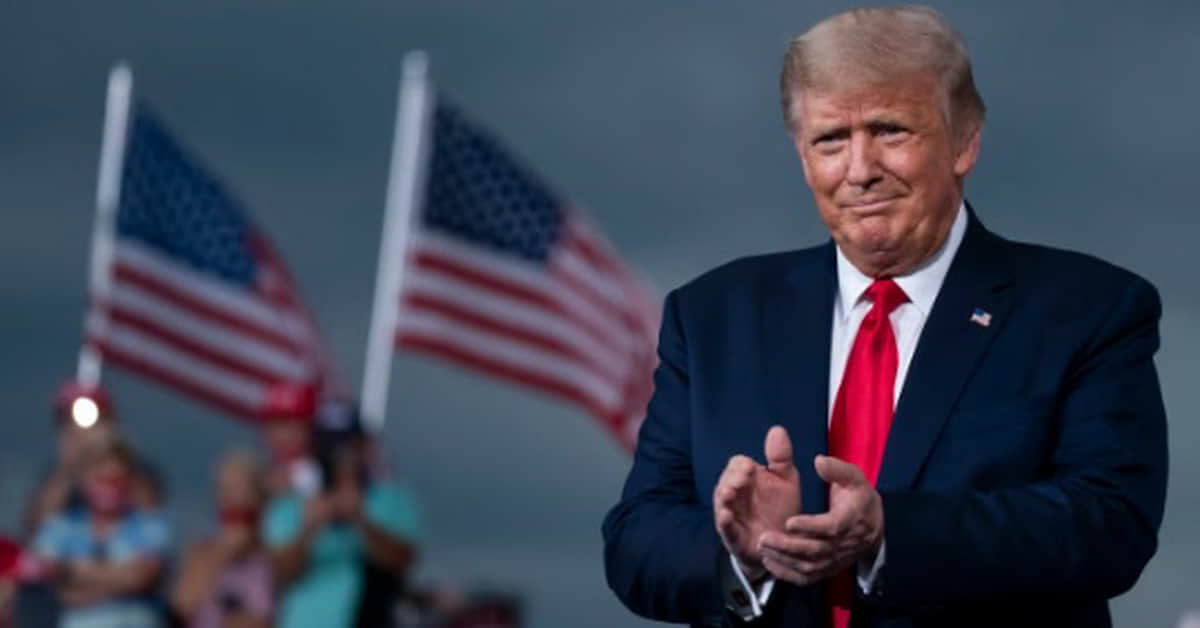How Trump destroyed trust in the US and what the world looks like now

It has been only two and a half months since Donald Trump returned to the White House, but the world has already fundamentally changed. Trump is rapidly undermining US trade relations and the global system of free trade that the United States helped establish after 1945. He is also casting doubt on America's longstanding alliances, not least NATO and the security guarantees that it represents.
Trump has made no effort to hide the fact that his sympathies lie with Russia, the aggressor, rather than with Ukraine, the beleaguered democracy that has been fighting for its freedom and sovereignty. Trump has also suggested that the US should take control of Gaza, expel its population to other Arab states, and turn the enclave into a resort. And he continues to talk about annexing Canada, Greenland, and the Panama Canal.
On the home front, he has allowed the world's richest man, Elon Musk - the vanguard leader of a Silicon Valley-based techno-fascist movement - to gut the American state under the guise of cost-cutting, elimination of waste and fraud, and deregulation. Germany's former Vice Chancellor and Foreign Minister (1998-2005), Joschka Fischer, calls it "a brutal and senseless act of destruction." Read more about the consequences of the 47th US President Donald Trump's policies in Fischer's column - American suicide: how Donald Trump changed the world by shattering western unity. The author points out that pundits and commentators have long interpreted "America First" as a revival of the isolationist movement that was active before World War II, but Trump seems to have something else in mind.
"He wants a world where a handful of global superpowers compete - violently if necessary - for resources, raw materials, and spheres of influence," Joschka Fischer writes. What does any of this actually do for the US? Will it make the country stronger?
The former vice chancellor believes that Trump's policies, both foreign and domestic, increasingly seem to be geared toward weakening America - or even toward its self-destruction. He emphasises that the US gains nothing from hostility toward Europe. Fischer underlines that for decades, "the West" - an unrivaled geopolitical framework of military alliances and trade relationships - served as a force multiplier for US power and influence.
It is why America handily won the Cold War and grew stronger than any power in history. "Who benefits from throwing all that away? Only Russia and China, which have been quietly watching and waiting as America commits suicide," he writes. Fischer is sure that there will be no return to the previous international order.
According to him, Trump has destroyed trust in the US for at least a generation. American commitments are no longer credible. "The country's institutions - including major media outlets, universities, and law firms - are crumbling before our eyes.
The US will still enjoy a unique geographical position between the Atlantic and the Pacific, but the rest of the world will know that Trumpism has become an enduring feature of its politics," Joschka Fischer points out. According to him, the disappearance of "the West" and the collapse of American leadership (and democracy) will dramatically alter world politics in the twenty-first century. The author believes that American society itself will remain polarized, consumed by irrationalism, and prone to conspiracy theories.
In his 1935 novel It Can't Happen Here, Sinclair Lewis imagines the rise of a dictator to mirror the Fascist and Nazi regimes in Europe. "Now, 90 years later, his dystopia is materializing. Like Goethe following the Battle of Valmy in 1792, when the Prussian army retreated before the French revolutionary forces, we are witnessing the start of a new era in world history," the former German politician concludes.
If you notice an error, select the required text and press Ctrl + Enter to report it to the editors.